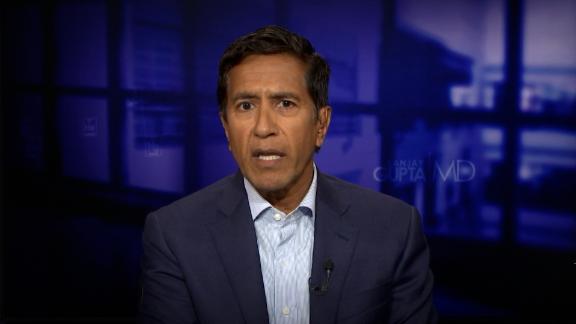Teachers want to be back in classrooms, but after a year of Covid-19 it’s unclear when all schools will reopen fully

Teachers and school staff want to return to the classroom with their students, education experts said. But after a year of the pandemic, managing Covid-19 still poses obstacles to in-person learning.
“That’s how they were trained to teach, and work with them, and they miss them. They want to be back in person,” Becky Pringle, president of the National Education Association, told CNN’s Jake Tapper on Friday. To make that return, Pringle said, it is important to be able to tell teachers, staff, parents and students that school is a safe place to be.
As of Monday, teachers and educators in all 50 states will be eligible to receive Covid-19 vaccinations. The eligibility comes as the US ramps up vaccination efforts in hopes of curbing the spread of coronavirus variants and setting a course toward some sense of normalcy again.
Secretary of Education Miguel Cardona told Tapper that safely reopening the nation’s more than 14,000 public school districts for full, five-day-a-week classes is his top priority — but he can’t say yet when that will happen.
“This is unprecedented, I mean, we are in the middle of a pandemic. I do feel that (schools are) following the science and I do think that this is hard work. There is no playbook for this in any leadership course,” Cardona said.
“It’s a balance to make sure that we’re moving the needle in the right direction to get students in school every day, but we have to do so making sure we’re adhering to those mitigation strategies that have worked to keep our schools safe.”
More than 100 million doses for Covid-19 vaccines have been distributed so far in the US, and President Joe Biden has said that by May 1, all adults in the US will be eligible to be inoculated.
Hopes of vaccinating all US adults by the end of May
By the end of May, there could be 100 million more doses available from Johnson & Johnson, the White House said.
In addition, there will be 200 million doses each of the Moderna and Pfizer vaccines, White House Covid coordinator Jeff Zients said.
The US adult population is approximately 255 million people, according to Census data, and the US will have enough supplies to fully vaccinate 300 million people by the end of May, according to the Biden administration and projections provided by Pfizer, Moderna and Johnson & Johnson.
Maine is among the states which is accelerating plans to meet the goal of having all adults eligible by May 1.
“As the Biden Administration works to get us shots, we will continue our work to get them into arms. The future is getting brighter, but there is more to do — and my Administration will continue to work with the President and with health care providers across the state to get people vaccinated and move us closer to getting back to normal,” Gov. Janet Mills said Friday.
Meanwhile, Michigan residents over 16 will be able to get their vaccines beginning April 5, ahead of the national schedule, state officials announced Friday.
You asked, we’re answering: Your top questions about Covid-19 and vaccines here.
Treatment shows “really dramatic” results to fight Covid-19, Fauci says
As officials work to ramp up vaccinations, experts hope treatments of the coronavirus could mitigate its impacts. Experts are especially upbeat about monoclonal antibodies.
Dr. Anthony Fauci, director of the National Institute of Allergy and Infectious Diseases, said while monoclonal antibodies are a “very fluid area of research,” many of these treatments show “really dramatic” results that help fight the disease.
Fauci, speaking Friday at the White House COVID-19 Response Team briefing, referenced a number of recent studies that showed how much help these treatments offer patients early in the course of their disease. They are some of the only treatments authorized by the US Food and Drug Administration to treat non-hospitalized Covid-19 patients, and they are still underutilized.
“The reason why I point this out is that, recently, there has been a considerable amount of information regarding some of the monoclonal antibodies that are used in the prevention and treatment of Covid-19,” Fauci said.
Fauci added that the treatments work for now. There is some concern that the variants may make the treatments less effective, but the companies continue to work on several updated cocktail approaches that scientists believe will work against the variants.
Fauci “very much” concerned about a mental health pandemic
As health experts worry over the impacts of the pandemic on physical health, Fauci said he is also “very much” concerned about the impact on mental health, as well as all the other long-term effects.
“That’s the reason why I want to get the virological aspect of this pandemic behind us as quickly as we possibly can, because the long-term ravages of this are so multifaceted,” Fauci told CBS’ Norah O’Donnell on Thursday.
“I hope we don’t see an increase in some preventable situations, which would not have happened if people had the normal access to medical care, which clearly was interrupted by the shutdown associated with Covid-19,” he said.
As more people are being vaccinated, some are beginning to resume more of the activities that have been advised against for the past year.
Grandparents are reuniting with the grandchildren, restaurants and movie theaters are reopening and US air travel saw its third busiest day of the pandemic Thursday.